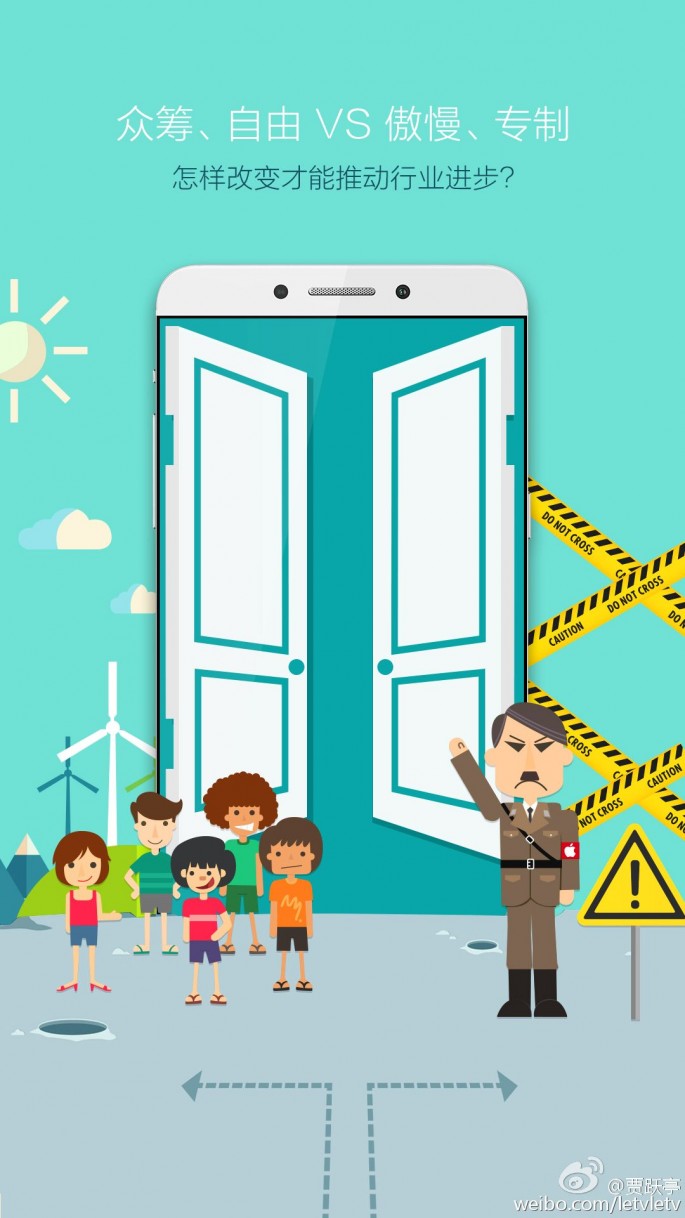Jia Yueting, the billionaire founder and CEO of Leshi Internet Information and Technology or LeTV, posted on Friday a caricature depicting a comparison between Apple, Inc. and Adolf Hitler via his official Weibo page.
The caricature shows the infamous German leader sporting the signature "Heil Hitler" gesture and a red armband featuring the iconic Apple logo.
Hitler, positioned in front of warning signs and caution tapes, is said to symbolize Apple's experience. On the other end of the poster are small children, all smiles, depicting the Android experience.
In the middle, an open door framed in a phone-shaped border is believed to depict the LeTV's upcoming "super smartphone," which is expected to be released on April 13 in Silicon Valley.
Jia's post was captioned, "crowd-sourcing and liberty VS arrogance and dictatorship. In which way can we move the industry forward?"
"There is only a model of the time but no model that can be successful forever. The time is going to change, and you are going to give up your liberty for good user experiences," the LeTV CEO remarked in a separate tweet.
When asked by China Daily, neither LeTV nor Apple has commented.
Prior to the Friday Weibo post, Jia has been openly criticizing Apple, as well as other companies. Earlier in February, the LeTV CEO commented on Samsung's Galaxy S5 smartphone.
"Samsung is a brand of the industrial age and cannot meet demands of present. So many non-subversive products like this made mobile Internet encounter its bottleneck. LeTV never does any non-subversive product," Jia posted.
In Aug. 2012, Jia bashed Sony, saying that its "stiffened mindset and dull design were seemingly staying in the last century and has failed to catch up with the Internet age."
The traditional video portal company has been eyeing to create its own brand of system such as Apple's and Google's. On his Weibo, Jia boasted that his firm is "an Internet company that has built a multi-terminal UI after Apple and Google."
On Thursday, LeTV launched its own music streaming company. Earlier in May 2013, it unveiled its own "super TV."



























